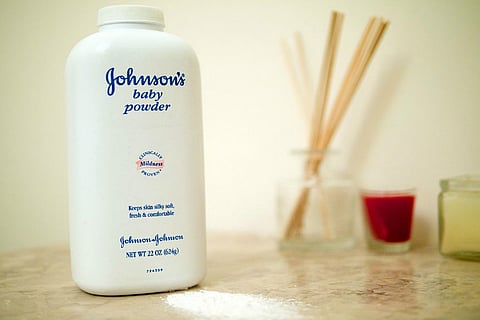

A California woman has been awarded more than $70 million by Johnson & Johnson in her lawsuit after she claimed that continued use of baby powder for years had led to her cancer.
The case was filed by Deborah Giannecchini of Modesto, California, who was diagnosed with ovarian cancer in 2012. The trial in the case began on September 26.
“We are pleased the jury did the right thing. They once again reaffirmed the need for Johnson & Johnson to warn the public of the ovarian cancer risk associated with its product,” said attorney Jim Onder.
Johnson & Johnson spokeswoman Carol Goodrich said in a statement, “We deeply sympathize with the women and families impacted by ovarian cancer. We will appeal today's verdict because we are guided by the science, which supports the safety of Johnson's Baby Powder.”
Two other lawsuits worth a combined $127 million were awarded earlier this year while two others were dismissed for lack of credible evidence that talc in baby powder leads to ovarian cancer, the report says.
The report adds that of the 1.7 million new cases of cancer expected to be detected in the US this year, 22,000 of these will be ovarian cancer.
It’s been a long-running debate whether baby powder causes cancer, with around 2000 women having filed similar lawsuits, as per the report.
While research has indicated a potentially weak link between baby powder used for feminine hygiene and ovarian cancer, the company has maintained that its product is absolutely safe.
Health and consumer groups have targeted Johnson & Johnson in the past over the ingredients in its products for a possible link with cancer. In 2012, the company agreed to remove 1,4-dioxane and formaldehyde that are possibly carcinogenic, from all its products by 2015.